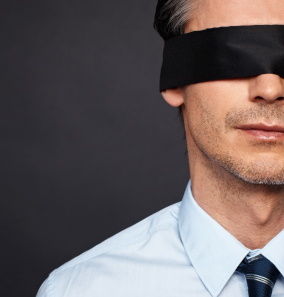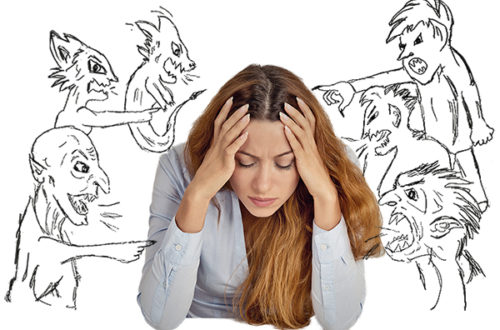My first experiences with racism occurred in my Italian neighborhood where naked windows were said to have “Puerto Rican Blinds,” anyone Hispanic was dubbed a “Mira Mira,” and people who walked down my street with skin darker than peach were glared at until they were out of sight. I was shown the world through White windows that separated “us” from “them,” and I was tainted by that distorted thought process for years. It’s low point came during a grammar school talent show when I told my brother who was seven-years old at the time, we were not to clap for the black girls when they finished their act. I was eleven-years old, and had no idea why clapping for a black girl was anathema, and that my brother would reference the moment ad infinitum.
It took years for me to disentangle my own thoughts from those of the old people on my street, and when I became a Social Worker, I found myself in service to populations I was once taught to look upon with disdain. What complicated matters even more was the fact I was also battling modern xenophobia born of generalizations about the middle east. Eventually, I came to the conclusion any preconceived notion I harbored about people of different races, religions, or skin colors were not my own thoughts, but were planted there by people I trusted to teach me about the world.
Social Workers employ universal positive regard because we understand trust cannot be established in relationships marred by judgement, and in the absence of trust, change will never happen. But this approach is disingenuous if not rooted in genuine relationships in which I drew conclusions about people based on my own individual experiences with them. Eventually, I adopted a position of “color blindness” as a means to convey my reluctance to allow race, religion, or ethnicity to factor into the way I understood people. Unfortunately, I was almost as wrong as when I allowed my thoughts to be influenced by what I learned as a child.
“Color blindness” is problematic because instead of judging someone based on race, religion, or ethnicity, it discounts those characteristics, therefore discounting a large percentage of that person’s experiences in the world. The immediate consequence of being a color blind therapist was a lack of understanding about the various cultures of my clients; the role culture plays in family structure, and norms under which different cultures live. Having my handshake rejected by a Muslim mother whose culture frowns upon contact with members of the opposite sex was one of the eye-openers that changed my perspective. It was easy to think the refusal rude, but it was more about adherence to cultural norm.
My color blindness was not rooted in malice, but instead in an erroneous attempt to assume a homogenized world. I failed to realize my new perspective attempted to erase all the wounds inflicted on races less privileged than my own. When I think again about Muslims seen in therapy, my color blindness could have stopped me from learning what it must be like to be Muslim at a time Muslims are generalized as terrorists. My new awareness allowed us to bring cultural differential into the open so we could move beyond any possible misunderstanding about how each of us could have stereotyped the other.
Had I maintained my position of color blindness, I would be dismissive of the extent to which people with skin darker than mine are perceived differently from me, and I’d be ignorant to believe racism doesn’t exist because I reject it. I never feel eyes on me as I aimlessly wander a grocery store, and I believe women feel safe when I walk down the street behind them as opposed to someone of color. I also receive courteous greetings whenever stopped by cops in an era during which cameras routinely record brutality towards minorities. No one suspects me of anything, and for me to be color blind removes my awareness that not everyone is afforded the same luxury.
Color blindness is the privileged perspective of Caucasians making a conscious choice to forget the past and neglect the present. It creates an illusion of sameness when people should be celebrated for their differences. If anything, color blindness was nothing more than my misguided attempt to eradicate white guilt, and ignore a problem that refuses to go away.
When I serve as therapist for people different from me, I allow my clients to teach me the way they experience the world because some of those experiences could be what brought them to therapy in the first place. Should I choose to ignore those possibilities, there is little I could do to help because in essence, my color blindness assumes the problem doesn’t exist.
Recognizing and openly acknowledging differences in race and ethnicity allows me to appreciate the uniqueness of diverse cultures while at the same time taking into account the inherent struggles associated with those cultures. It is quite possible someone with skin like mine did everything they could to make my client miserable based solely on color, accent, or religious ideology. Fortunately, I’ve learned I need not be an ambassador for Caucasians who also might be stereotyped by other races, but instead focus on a relationship with the individual before me. It’s my way of allowing people to draw their own conclusions free of bias.
There is no such thing as a born racist. Anyone who ever held a position of hatred based on differences learned that from a person who learned it from a person who learned it from a person. When we hold beliefs rooted in a generational transmission process, we discount our ability to make decisions rooted in thought, and based on our individual experiences with people. If we decide to go in the opposite direction, and claim color blindness, we surrender the opportunity to learn about other cultures, we negate all inherent adversities associated with being “different”, and we uphold prejudiced beliefs because being color blind assumes everyone is white. In the end, that is its own brand of tragic blindness, and an insidious way of perpetuating the problem that wont go away.





